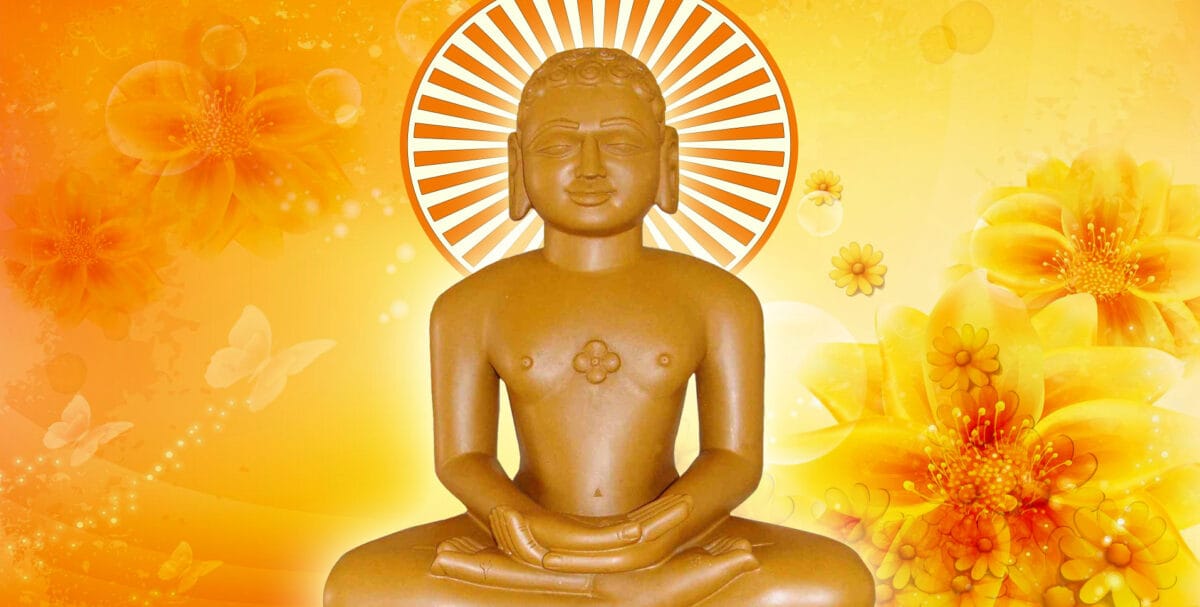The important festival known as Mahavir Jayanti is observed by Jains all over the world to commemorate Lord Mahavir’s birth, the 24th and final Tirthankara of Jainism. Because it commemorates the life and teachings of Lord Mahavir, one of Jainism’s most revered and influential spiritual leaders, it is a day of great significance for Jains. Mahavir Jayanti is commended with extraordinary dedication and excitement, with Jains performing different ceremonies and customs to honor their cherished Master Mahavir. Nonviolence, honesty, and compassion are all emphasized in Mahavir Jayanti’s teachings, which are still relevant and significant in the world of today. We will discuss Lord Mahavir’s life and teachings, the significance of Mahavir Jayanti celebrations, and the messages and values associated with this auspicious occasion in this blog post.
The life of Mahavir
Lord Mahavir was brought into the world in Kundagrama, a little town in the present-day Bihar territory of India, in 599 BCE. He was born to King Siddhartha and Queen Trishala, members of a royal family. Astrologers predicted that the child would become a great spiritual leader as a result of the numerous favorable signs that were present at his birth.
Although Mahavir grew up in opulence and luxury, he was always contemplative and interested in spirituality. He left his family when he was 30 to become an ascetic, giving up all of his material possessions and focusing on learning about the spiritual world. In his quest for enlightenment, he spent the subsequent twelve years deep in meditation, self-reflection, and self-mortification, enduring significant physical hardships.

Mahavir attained Kevala Jnana, the highest spiritual knowledge in Jainism, after twelve years of intense penance and meditation. He then became a Tirthankara—a “ford maker” who demonstrates the path to liberation to others. He spent the remainder of his life teaching his lessons, which underscored the significance of peacefulness, truth, empathy, and the way of renunciation.
Though simple, Mahavir’s teachings were profound. He preached that every living thing had a soul and that one should avoid harming other living things, whether it be through mental or physical violence. Additionally, he stressed the significance of self-control, austerity, and compassion for all living things.
Mahavir is regarded as one of the greatest spiritual leaders of all time because of the profound influence his teachings had on Indian society. Many people have been inspired by his message of compassion and nonviolence, including Mahatma Gandhi, who heavily incorporated Jain principles into his own nonviolence philosophy.
Mahavir Jayanti celebrations
Jains worldwide celebrate Mahavir Jayanti with great enthusiasm and devotion. The festivals normally start with an exceptional petitioning God known as the Abhisheka, wherein fans offer milk, saffron, and different things to the symbol of Ruler Mahavir in Jain sanctuaries.
Aficionados likewise visit sanctuaries and perform puja, which includes offering blossoms, natural products, and different things to Master Mahavir. Numerous Jains likewise partake in parades, where they convey icons of Ruler Mahavir and sing psalms in his honor.

Ahimsa, or non-violence, is another significant tradition observed on Mahavir Jayanti. In most cases, Jains observe a day of fasting and refrain from both mental and physical violence. They also don’t eat or drink after sunset and spend the day in prayer and meditation.
Jains use Mahavir Jayanti as a time to reflect on Lord Mahavir’s values and teachings. Many Jains take advantage of this opportunity to research Lord Mahavir’s teachings and discuss their significance and relevance in the modern world.
As Jains pay homage to their beloved Lord Mahavir and reflect on the significance of nonviolence, truth, and compassion in their lives, Mahavir Jayanti is, overall, a time of great joy and celebration.
Mahavir Jayanti messages and values
For Jains, Mahavir Jayanti is more than just a day of celebration; it is also a time to think about the most important messages and values that Lord Mahavir and his teachings convey. From Mahavir Jayanti, both Jains and non-Jains can learn important lessons about the following:
Ahimsa, or nonviolence: The main message of Mahavir Jayanti is the significance of peacefulness, which is at the core of Jain way of thinking. Lord Mahavir taught that no living being should be harmed, whether through physical violence or mental torture. He believed that all life was sacred. In today’s world, where violence and conflicts are all too common, this message of nonviolence is especially relevant.
Satya (truth): Truth and honesty were very important to Lord Mahavir in all aspects of life. He taught that speaking the truth should always be done, even when it is uncomfortable or difficult. In today’s world, where honesty and integrity are frequently lacking, this message of truth is especially significant.

Kindness (Karuna): Lord Mahavir taught that compassion for all living things should always be present. He was of the opinion that it was crucial to assist others and treat them with compassion and understanding. In today’s world, where there is frequently a lack of empathy and comprehension, this message of compassion is especially significant.
Self-control (Sanyam): Austerity and self-discipline were important to Lord Mahavir. He taught that one should have control over their desires and live a life that is simple and well-ordered. This message of self-restraint is particularly pertinent in this day and age, where realism and commercialization are uncontrolled.
In general, Mahavir Jayanti’s messages and values are timeless and applicable to people of all faiths and backgrounds. They motivate us to strive for a world that is more peaceful and harmonious and serve as a reminder of the significance of living a life based on truth, compassion, self-discipline, and nonviolence.
Conclusion
In conclusion, the day of Mahavir Jayanti is very important to Jains all over the world. This is a time to remember and celebrate Lord Mahavir’s life and teachings, as well as to consider his most important ideas and principles. We are encouraged to live a life that is more peaceful and harmonious through Mahavir Jayanti, which teaches us the significance of nonviolence, truth, compassion, and self-discipline. In today’s world, where there is frequently a lack of empathy, comprehension, and respect for all living things, these teachings are especially relevant. We should all work toward a world that is more peaceful and just, and Mahavir Jayanti serves as a reminder that we should all strive to live in harmony with nature and with one another.
FAQs
What is Mahavir Jayanti?
Mahavir Jayanti is a significant festival observed by Jains worldwide to mark Lord Mahavir’s birthday, the 24th and final Tirthankara of Jainism.
How is Mahavir Jayanti celebrated?
Jains celebrate Mahavir Jayanti with great enthusiasm and devotion. It includes exceptional supplications, contributions, puja, parades, and contemplation. On this day, Jains also observe a day of fasting and nonviolence.
What is the significance of nonviolence in Jainism?
One of Jainism’s fundamental principles is nonviolence, or Ahimsa. Jains accept that all living creatures have a spirit, and hurting any living being, straightforwardly or in a roundabout way, prompts negative karma. As a result, Jains live a life of non-violence in every way, from their thoughts to their words to their actions.
What are Lord Mahavir’s most important teachings?
Truth, compassion, self-discipline, and nonviolence were taught by Lord Mahavir. He taught that one should live a simple and disciplined life, control one’s desires, and practice non-attachment. He also believed in the sanctity of all life.
Is Mahavir Jayanti only celebrated by Jains?
Jains are the primary group that celebrate Mahavir Jayanti, but people of other faiths and backgrounds also take part. Lord Mahavir’s teachings on truth, compassion, nonviolence, self-discipline, and truthfulness are universal and can be followed by anyone, regardless of religion or belief system.







